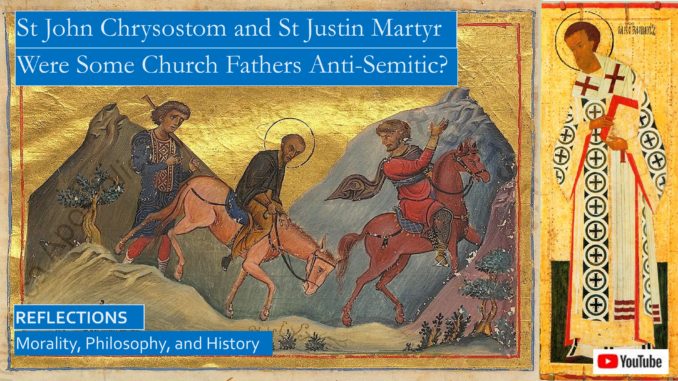
When reading the works of the early Church Fathers we are confronted with a quandary, many of these early writings include some anti-Semitic sentiments. We moderns who look back in horror at Hitler and the Holocaust and his mechanized murder of millions of Jews are much more sensitive to the evils of anti-Semitism than were Christians in early centuries. The lesson learned by Catholics at Vatican II and all postwar Christians is we need to be very reluctant when we slander the reputations of whole social groups, this is just as dangerous as slandering the reputation of any of our neighbors.
We read in a prior blog that the Epistle of Barnabas has many passages that are explicitly anti-Semitic. One troubling example is when Barnabas states that when Moses carrying the tablets containing the Decalogue saw the riotous celebrations of the Jews dancing around the golden calf, he hurled them to the ground, smashing them. Barnabas tells us that at that time the Jews lost their right to the Covenant of God, which is as ludicrous as it is slanderous.
http://www.seekingvirtueandwisdom.com/epistle-of-barnabas-blog-1/
This is not that troubling, although there were a few churches that considered Barnabas to be canonical, the theology, accuracy and writing style was so far below the other eventual New Testament writings, and also the other patristic writings, it was never seriously considered to be canonical, few copies survived.
What is more troubling are the multiple apparent anti-Semitic sentiments included in the writings of Justin Martyr in his “Dialogue With Trypho.” Trypho was a Jew, maybe Justin Martyr did dialogue with some Jews, but in this work the dialogue is an obvious literary device. Nevertheless, there are multiple passages that are so harsh that they would deeply offend any Trypho you wanted to convert. For one example, Justin Martyr says circumcision separates Jews from Christians, so that the lands of the Jews “may be desolate and their cities burned with fire.” In another example, Justin Martyr says this about Isaiah 14, where the Lord says He will remove this people for their lack of faith. Justin Martyr expands, “deservedly too, for the Jews are neither wise nor prudent, but crafty and unscrupulous; wise only to do evil,” incapable of following the everlasting paths, etc.[1]
ST JOHN CHRYSOSTOM AGAINST THE JEWS AND JUDAIZERS
John Chrysostom is the most strident of the early Church writers in his writings opposing the Judaizers where he warned his flock that Christians should not adopt Jewish customs and practices, that Christians needed to celebrate the Church festivals rather than the Jewish festivals, that Christians should not attend services at the synagogue. His work “Against the Judaizers” is so polemic that it is far more anti-Semitic than the writings of Barnabas and St Justin Martyr and many other church fathers, it is painful for us modern readers to read, we who remember the horrific events of the Holocaust. This work is not in the standard collection of the works of the Nicene and Anti-Nicene Fathers, but it was widely read in medieval times and afterward, and unfortunately was used to justify the European and Russian pogroms and persecutions against the Jews.[2]
One scholar who has pondered the problems posed polemic stands against the Judaizers by St John Chrysostom and also St Cyril is Robert Wilken. In this book “John Chrysostom and the Jews,” he explores the history of the early church to better understand the world of the early Church Fathers. We cannot totally excuse the errors in the teachings of the early Church Fathers, but neither can we blindly judge and condemn them for not knowing the lessons of the Holocaust. There is nothing wrong with reading the Church Fathers as they apply to our modern world, but particularly in this case we should also let the Church Fathers in their ancient historical context, we need to do both lest we have a distorted understanding of the history of our faith.
Today we live in a Christian world where Christianity is seen as one of the ancient and dominant world religions. In contrast, only a small minority of the ancient world were Christians, and Christianity was denigrated as a new faith or cult. The important dates to keep in mind are:
306-337: Constantine the Great is the Roman emperor who converts to Christianity, tradition holds that he has a vision of the cross with the Chi-Rho symbols and is told, “Under this sign you will conquer.” He defeats the rival emperor under this sign and moves the capital to Constantinople.[3]
325: Constantine calls the First Ecumenical Council of Nicaea. Many in the church held Arian beliefs, the bishops in this council established the Nicene Creed and an affirmation that Jesus was both man and God, and as the eternally begotten Son of the Father, both the Father and the Son were uncreated beings, eternally part of the Trinity with the Holy Spirit.[4] The debates between the Arians and the Nicaeans were quite lively among the whole population through the next century.
361-363: Julian the Apostate reigned as emperor for nineteen months.[5] The Great Courses has an excellent series of lectures by Kenneth Harl on his reign. Although he was an eccentric and not very popular emperor, if Julian had not been killed in his military campaigns in Persia he might have been successful in reestablishing the primacy of the Roman gods as a state religion.[6] The reign of this pagan emperor was a shock to Christians, the eventual triumph of Christianity was not assured, many Christians worried that Julian would not be the last pagan emperor.[7]
While Emperor Julian went to war with the Persians, he had started rebuilding the Temple in Jerusalem, planning to hand over control of the Jerusalem to the Jews. Work was halted due to a fire, and was never resumed after his death.[8] Many Christians interpreted Jesus prophecy that the Temple would be destroyed as proof of the divine approval of Christianity, the fear was if the Temple would be built under a future pagan emperor, that would damage the credibility of Christianity.[9]
Wilken states that Julian’s project to restore the temple had three purposes:
Christ’s prophecy of the destruction of the temple would be negated, revealing Him to be a mere man rather than Son of God.
Christianity would be shown as “illegitimate and apostate by legitimizing the observance of Jewish law.”
The Jews would ally themselves with the pagans in their religious reforms to restore sacrificial worship, both in the Jewish Temple and pagan temples.[10]
Wilken offers strong arguments that Julian’s policy to reject Christianity, aborted decisively by his untimely death, enhanced Christian suspicions that the Jewish culture was more the enemy of Christianity than its source. Indeed, Julian argued that if the “observance of the Law was legitimate, then Christianity was illegitimate.”[11] The early Church Fathers, St John Chrysostom in particular, insisted that Christians had to choose whether they believed in either the Jewish Law or the Christian Gospel. John Chrysostom’s homilies on the Judaizers “argued for the truth of the Christian religion.”[12]
349-407: Life of St John Chrysostom, in 381 he was ordained as a priest in Antioch, which had a large and influential Jewish community. In 397 he was appointed Archbishop of Constantinople.[13]
St John Chrysostom did not always rail against the Jews, in numerous writings he praised the devotion of the Jews, setting them up as examples for Christians.
POLEMICS AND ST JOHN CHRYSOSTOM, GOLDEN MOUTH
Wilken devotes a chapter on “Preaching and the Rhetoric of Abuse,” where he shows how the polemic oratory of Roman rhetoricians like Cicero was adopted by many early Church Fathers, and like the whole book is an interesting look at the early Roman Christian culture. St Augustine in his early writing, “On Christian Doctrine,” encourages preachers to study and use rhetorical devices in their preaching.
Wilken gives an example of a rhetorical device John’s favorite metaphor, describing Jews and other “opponents as ravenous wolves surrounding the helpless flock of Christ.”[14] John also preached, “Do not be surprised if I have called the Jews wretched and miserable, for they have received many good things from God but yet have spurned them and violently cast them away.”[15] Wilken also observes, “Like the rhetors, the preachers expected shouts and cheers, applause, and feet stomping. John complained about the love of applause but, like any other speaker, he sought and desired the adoration of the crowd.”[16]
Most notorious are John Chrysostom’s comments in his homilies against the Judaizers on the verses where the Jews shout, “Crucify Him! Crucify Him!”, and where the Jewish mob shouts about Jesus, Let ‘His blood be on us and our children! (Matthew 27:25) John asks, “Why do you have dealings with those who affronted God? Is it not folly for those who worship the crucified Lord to celebrate festivals with those who crucified Him? This is not only stupid, this is sheer madness.”[17]
John Chrysostom may share the initials JC, but he is not Jesus Christ. The Church is obligated to hold Scripture as sacred, but the Church is also free to denounce any erroneous teachings of the Church Fathers, who are, indeed, only human. Indeed, in both the decrees of Vatican II and the Catechism, the Catholic Church specifically condemns this misinterpretation of Matthew. “Neither all Jews indiscriminately in ancient times, nor Jews today, can be charged with the crimes committed during the Passion” suffered by Jesus on the Cross. “The Jews should not be spoken of as rejected or accursed,” this is not what the Gospel of Matthew reveals to us.[18]
YOU MUST CHOOSE WHAT YOU BELIEVE
Why was the Jewish faith so threatening to Christianity? Judaism was undergoing an intense spiritual and intellectual awakening, leading to the compiling of the Mishnah and the Jerusalem and Babylonian Talmuds, the revered commentary on the Torah, or the five books of Moses containing the Jewish laws.[19] The Jewish rituals appealed to many pagans, in synagogues to this day the Torah is rolled into a scroll and kept in a Torah shrine. The ancients often held the Torah scrolls in religious awe, capable performing signs and miracles, possessing magical qualities. Some Christians mirrored Jewish practices by hanging boxes containing gospel texts, perhaps as magical talismans. If Christians had copies of the Old Testament, and few churches had a complete set since they had to be copied by hand, these copies would be a substandard translation, you had to visit the synagogue to read the original Torah scrolls in Hebrew.[20] Jerome did not finish the superior Latin translation of the Old Testament, the Vulgate, until late in John Chrysostom’s life.[21] In addition, many ancient pagans admired the complex initiation rites of the mystery religions, and they were likewise attracted to the challenges of following the Jewish dietary laws.
Robert Wilken closes his study, “John Chrysostom could not take seriously the way of life of the Jews nor could he take seriously the claims of the Judaizers among the Christians. He saw no way to acknowledge the ongoing reality of Israel without calling into question the truth of the Christian faith. That John’s view won out is significant for the later history of Christianity for it has shaped all Christian thought about Judaism since his time; But that is no reason why it should be our own view.”[22] A clarification is needed, the Vatican II decrees on ecumenicism did back away from John’s views on Judaism.
[1] St Justin Martyr, “Dialogue with Trypho the Jew,” In the Ante-Nicene Fathers, Volume 2, (Boston: Hendrickson Publishers, 1994, first published 1885), Chapter XVI, p. 202
[2] Robert Wilken, “John Chrysostom and the Jews, Rhetoric and Reality in the Late Fourth Century,” (Eugene, Oregon: Wipf and Stock Publishers, 1983), pp. 162-163
[3] https://en.wikipedia.org/wiki/Constantine_the_Great
[4] https://en.wikipedia.org/wiki/First_Council_of_Nicaea
[5] https://en.wikipedia.org/wiki/Julian_(emperor)
[6] Kenneth Harl, “The Fall of the Pagans and the Origins of Medieval Christianity,” lectures recorded by The Great Courses, (www.thegreatcourses.com, 2011), lecture 20.
[7] Robert Wilken, John Chrysostom and the Jews, pp. 128-129.
[8] Robert Wilken, John Chrysostom and the Jews, p. 73
[9] Robert Wilken, John Chrysostom and the Jews, p. 137
[10] Robert Wilken, John Chrysostom and the Jews, p. 145
[11] Robert Wilken, John Chrysostom and the Jews, p. 148
[12] Robert Wilken, John Chrysostom and the Jews, p. 159
[13] https://en.wikipedia.org/wiki/John_Chrysostom
[14] Robert Wilken, John Chrysostom and the Jews, p. 118
[15] Robert Wilken, John Chrysostom and the Jews, p. 123
[16] Robert Wilken, John Chrysostom and the Jews, p. 106
[17] Robert Wilken, John Chrysostom and the Jews, p. 125
[18] Catechism of the Catholic Church, 2nd Edition (Washington DC: US Catholic Conference: 1994), pp. 153-154, paragraph 597
[19] Robert Wilken, John Chrysostom and the Jews, p. 46
[20] Robert Wilken, John Chrysostom and the Jews, pp. 80-84
[21] https://en.wikipedia.org/wiki/Jerome
[22] Robert Wilken, John Chrysostom and the Jews, pp. 163-164

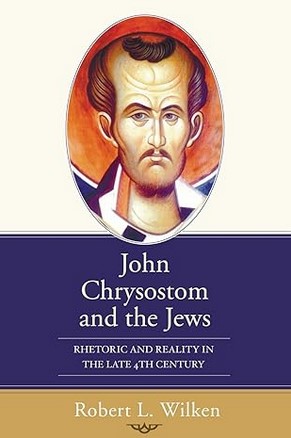
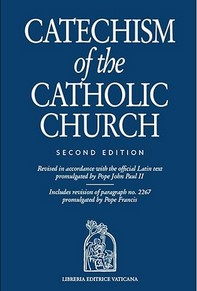
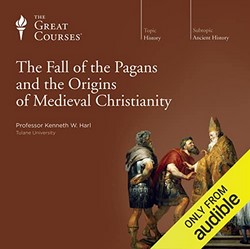
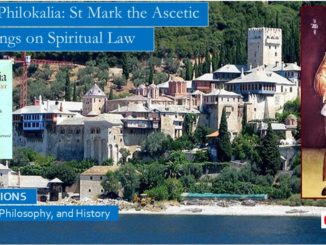
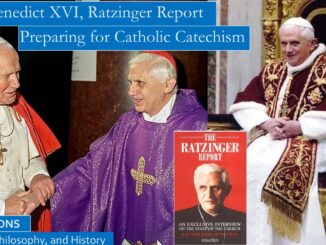
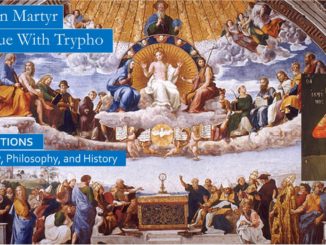
Be the first to comment